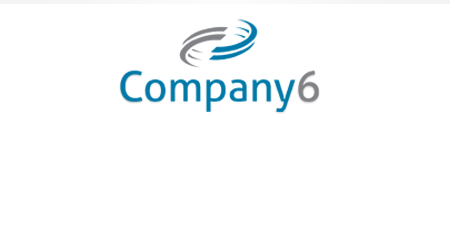About Us
Company 6 Ltd has 20+ years experience in Information Technology and Security within various sectors, including Public, ISP, Pharmaceutical, Banking and Investigative areas.
Statement from the Director:
Throughout my years in Information Technology, it has become apparent that certain principles need to be adhered to, in order to create effective and reliable environments, solutions and services for clients. The principles Company 6 Ltd adheres to, are based on the Parkerian Hexad (Donn B. Parker in 2002). These principles were originallty designed around information security, but hold true to every aspect of what Company 6 offers.
 Confidentiality
Confidentiality
Confidentiality has been defined by the International Organization for Standardization (ISO) as
"ensuring that information is accessible only to those authorized to have access" and is one of
the cornerstones of Information security.
Confidentiality of information, enforced in an adaptation of the military's classic "need-to-know"
principle, forms the cornerstone of information security in today's corporates. The so called
'confidentiality bubble' restricts information flows, with both positive and negative consequences
(Harwood, 2006).
Company 6 treats each client's information as if it were a national secret. Bold statement, yes, but
this is the standard we hold ourselves and our clients to; Whether the information is publically available
or on a strict need-to-know basis, you can be assured that any and all information and services shared
with Company 6, will be kept in the strictest of confidence.
 Possession or Control
Possession or Control
Possession or Control: Suppose a thief were to steal a sealed envelope containing a bank debit card and (foolishly) its personal identification number. Even if the thief did not open that envelope, the victim of the theft would legitimately be concerned that (s)he could do so at any time without the control of the owner. That situation illustrates a loss of control or possession of information but does not involve the breach of confidentiality.
We at Company 6 believe that posession or control of information, be it trade secrets or simply a contact list, should always be in the control of the client. Any potential information leak to a competitor, can cause harm to the company's reputation and even it's bottom line.
 Integrity
Integrity
Integrity refers to being correct or consistent with the intended state of information.
Any unauthorized modification of data, whether deliberate or accidental, is a breach of data integrity.
Further, integrity is a concept of consistency of actions, values, methods, measures, principles,
expectations, and outcomes. In ethics, integrity is regarded as the honesty and truthfulness or accuracy
of one's actions. We understand the need to maintain a high level of ethical integrity as well
as adhere to various laws with regard to data integrity especially when presenting data to the courts.
 Authenticity
Authenticity
Authenticity refers to the veracity of the claim of origin or authorship of the information. For example, one method for verifying the authorship of a hand written document is to compare the handwriting characteristics of the document to a sampling of others which have already been verified. For electronic information, a digital signature could be used to verify the authorship of a digital document using public-key cryptography (could also be used to verify the integrity of the document).
We can provide the tools, procedures and training to ensure that your company can always authenticate any information it owns and maintains. Furthermore, we can offer extra services to identify information beloning to you, much like digital watermarks.
 Availability
Availability
Availability means having timely access to information. For example, a disk crash or denial-of-service attacks both cause a breach of availability. Any delay that exceeds the expected service levels for a system can be described as a breach of availability.
Ensuring that your data and information is always available to you, is one of the most powerful weapons in your arsenal. Without immediate access to certain pieces of information or data, the company can suffer losses not only in a Business as Usual scenario, but to the company reputation. We can provide solutions to ensure that even if your entire building were to be destroyed, you could be up and running in a matter of hours, not days!
 Utility
Utility
Utility means usefulness. For example, suppose someone encrypted data on disk to prevent unauthorized access or undetected modifications and then lost the decryption key: that would be a breach of utility. The data would be confidential, controlled, integral, authentic, and available they just wouldnt be useful in that form. Similarly, conversion of salary data from one currency into an inappropriate currency would be a breach of utility, as would the storage of data in a format inappropriate for a specific computer architecture; e.g., EBCDIC instead of ASCII or 9-track magnetic tape instead of DVD-ROM. A tabular representation of data substituted for a graph could be described as a breach of utility if the substitution made it more difficult to interpret the data. Utility is often confused with availability because breaches such as those described in these examples may also require time to work around the change in data format or presentation. However, the concept of usefulness is distinct from that of availability.
Information held should be useful. Having (for example) a wiki describing everything including the office water cooler is great, but if it doesn't allow a completely new employee to scan through a few pages and hit the ground running within his/her first day, then the information might as well not be there to start off with. We can supply solutions to ensure that information held is kept in a usable and easy to access form, thereby ensuring effeciency.
 Address
AddressRegistered Company Name: Company 6 Ltd
Registered in England and Wales
Company no: 7916659
VAT no: 130286932
Radius House, 51 Clarendon Road
Watford, England
WD17 1HP







